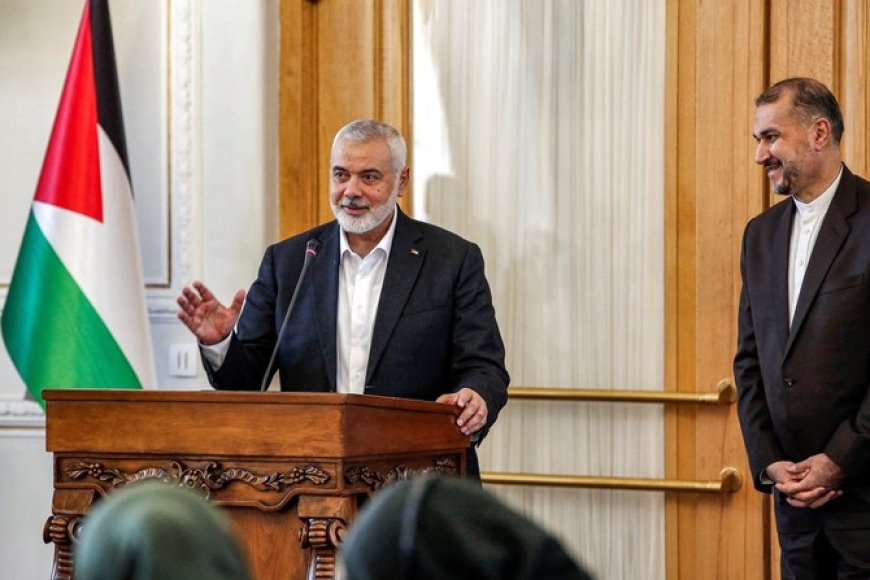Qatar and Egypt Condemn Assassination of Hamas Leader
The ongoing peace efforts between Israel and Hamas faced a significant setback following the assassination of Hamas leader Ismail Haniyeh

The ongoing peace efforts between Israel and Hamas faced a significant setback following the assassination of Hamas leader Ismail Haniyeh. Qatar and Egypt, key mediators in the ceasefire negotiations, have voiced strong criticism, suggesting that the killing could undermine any progress towards a truce in Gaza.
In a statement issued on X, Qatari Prime Minister Sheikh Mohammed bin Abdulrahman Al Thani questioned the viability of mediation efforts when one party resorts to assassinations. “Political assassinations and continued targeting of civilians in Gaza while talks continue lead us to ask, how can mediation succeed when one party assassinates the negotiator on the other side?” Sheikh Mohammed wrote. He emphasized the need for “serious partners and a global stance against the disregard for human life.”
The Egyptian Foreign Ministry echoed similar concerns, denouncing what it described as a “dangerous Israeli escalation policy” that has intensified over the past two days. The ministry criticized the escalation as a hindrance to the ceasefire talks and suggested that it reflected a lack of Israeli political will to de-escalate the situation. “The coincidence of this regional escalation with the lack of progress in the ceasefire negotiations in Gaza increases the complexity of the situation and indicates the absence of Israeli political will to calm it down,” the statement read.
The recent surge in violence has come at a critical juncture. Qatar, Egypt, and the United States have been actively involved in brokering a ceasefire between Israel and the Palestinian Islamist group Hamas. The conflict, which began in October with a Hamas-led attack on Israel that resulted in over 1,200 Israeli casualties, has claimed more than 39,000 Palestinian lives to date. Despite numerous attempts to negotiate peace, a final agreement remains elusive, with recent talks in Rome showing no sign of significant progress.
The assassination of Haniyeh occurred early this morning in Tehran, Iran, adding to fears of a broader regional escalation. This incident follows the killing of a Hezbollah commander in Beirut, an act that Israel has linked to a recent attack in the Golan Heights.
Qatar swiftly condemned the assassination, labeling it as a “dangerous escalation” and expressing concern about its potential impact on the fragile peace process. Haniyeh, who had resided in Qatar, was not directly leading the Gaza ceasefire negotiations but was a prominent figure within Hamas. The primary negotiator for Hamas in the ceasefire and hostage release talks has been Khalil Al-Hayya, according to sources familiar with the discussions.
The assassination also coincided with the visit of Egypt's newly appointed Foreign Minister Badr Abdelatty to Qatar, where he engaged in discussions with Sheikh Mohammed on the Gaza crisis and the broader regional implications of the recent violence.
As international efforts to halt the conflict continue, the recent developments underscore the complexity of achieving a durable peace in Gaza amidst escalating regional tensions.













































